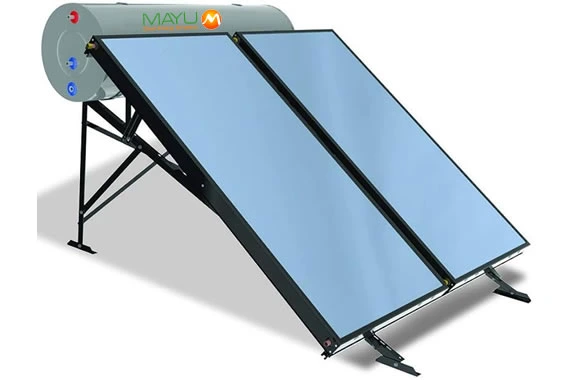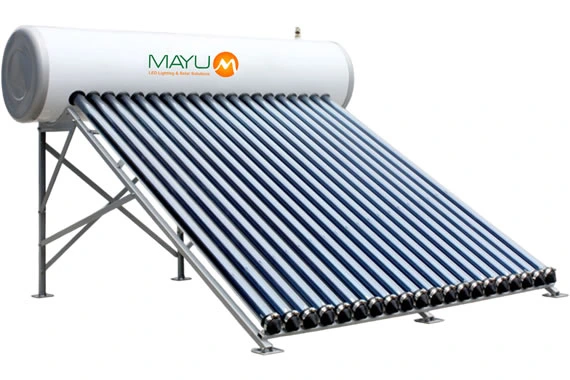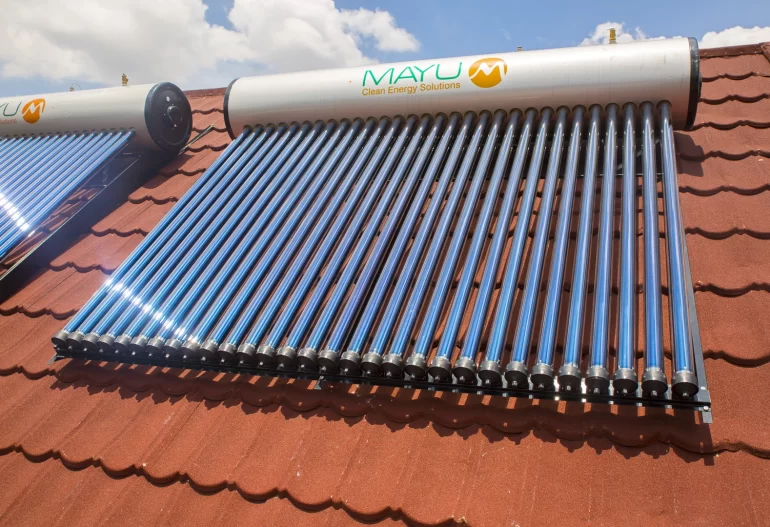No products in the cart.
10 Key Considerations for Choosing the Perfect Solar Water Heater for Your Home in Kenya
When it comes to sustainable energy solutions, solar water heaters are quickly gaining popularity across Kenya. As electricity costs continue to rise, many homeowners are seeking alternative methods to heat water efficiently and affordably. However, choosing the right solar water heater for your home can be a daunting task. This guide aims to simplify that process by highlighting key factors to consider. Whether you’re working with the best solar solutions in Kenya or consulting experienced solar system installers, these insights will help you make an informed decision.
1. Type of Solar Water Heater
There are two main types of solar water heaters: pressurized and non-pressurized. Pressurized systems maintain a constant pressure and are suitable for homes with stable water pressure. They typically use heat exchangers and are more efficient at delivering hot water at a consistent pressure. Non-pressurized systems rely on gravity and are ideal for areas with lower water pressure. These systems are simpler in design and often more cost-effective but may not provide the same level of performance as pressurized systems. Depending on your needs and budget, one may be more suitable than the other.
2. Type of Water
When choosing between heat pipe and flat plate water heaters, it’s crucial to consider the type of water in your area. Soft water, typically provided by utility companies like Nairobi Water, has low mineral content and is less likely to cause scaling. Heat pipe water heaters work well with soft water. In contrast, hard water from boreholes contains high levels of minerals like calcium and magnesium, which can cause scaling and reduce the efficiency of heat pipe systems over time. Flat plate water heaters are better suited for hard water conditions. Consult with a reputable solar water heater company in Kenya to choose the right system for your water type.

Pressurized Flat plate water heater
3. Size and Capacity
Determine the size and capacity of the solar water heater based on your household’s hot water needs. As a general rule of thumb, an average household will need about 50-60 liters of hot water per person per day. For example, a family of four would require a solar water heater with a capacity of 200-240 liters. Additionally, consider the peak usage times and the possibility of future expansion.
4. Installation Space
Assess the available space for installation. Solar water heater installation in Kenya can be done on pitched or flat roofs, and each type of roof will require a different frame or structure. Pitched roofs usually need a mounting frame to ensure proper angle and stability, while flat roofs may require a tilted structure to optimize sun exposure. Ensuring you have enough space and the correct orientation towards the sun is crucial for optimal performance.
5. Quality and Durability
Invest in a solar water heater from a reputable solar water heater company in Kenya. High-quality systems are more durable and can withstand the harsh weather conditions in Kenya, providing long-term savings. Pay special attention to the materials used for the tank. Stainless steel tanks are highly durable and resistant to corrosion, making them ideal for long-term use. Glass-lined tanks offer excellent protection against rust and are designed to withstand high temperatures. Copper tanks are also an option due to their excellent thermal conductivity and resistance to corrosion. Choosing a tank made from high-quality materials will ensure that your solar water heater lasts longer and performs efficiently.
6. Maintenance Requirements
Consider the maintenance requirements of the system. Some solar water heaters need regular upkeep, while others are more low-maintenance. Heat pipe systems typically use magnesium anodes to protect the tank from corrosion. These anodes need to be replaced periodically to maintain the system’s efficiency. Flat plate systems, on the other hand, often use glycol as a heat transfer fluid. Glycol prevents freezing and reduces the risk of scaling, but it also requires periodic checking and replacement. Choose a system that fits your maintenance preferences.
7. Cost and Budget
Evaluate your budget and compare different models. In Kenya, low-pressure systems are often sold at very low prices, and many people make the mistake of choosing them based solely on cost. Unfortunately, these systems tend to be unreliable, have high maintenance costs, and are eventually abandoned. While pressurized systems are more costly, they are recommended for their reliability and long-term performance. Investing in a high-quality system can save you money in the long run.
8. Energy Efficiency
Look for energy-efficient systems that can provide maximum heat with minimal energy loss. Solar water heaters use either evacuated tubes or flat plate collectors to capture solar energy. Mayu Solar’s heat pipe systems feature a copper rod that enhances efficiency, while our flat plate systems are titanium-coated to ensure maximum heat absorption. Insulation of the tanks is also crucial for energy efficiency. Inner and outer tanks should be well-insulated with materials like polyurethane foam or rock wool to minimize heat loss and ensure that hot water is available even during cooler periods. The best solar solutions in Kenya incorporate high-quality insulation to enhance energy efficiency and reduce energy waste.

Pressurized Heat Pipe Water Heater
9. Warranty and Support
Check the warranty and after-sales support offered by the solar water heater company in Kenya. Most companies fail at providing adequate after-sales service, which can be frustrating for customers. At Mayu Solar, after-sales service is our key strength. We offer a 5-year warranty on tanks, tubes, and plates, along with robust round-the-clock support. Our commitment to excellent customer service ensures that your investment is protected and that you receive the assistance you need whenever you need it.
10. Aesthetic Appeal
Beyond functionality, consider the aesthetic appeal of the solar water heater. A well-designed system can enhance the look of your home. Modern solar water heaters come in various styles and finishes that can complement your home’s architecture. Aesthetic appeal may not be the primary factor, but it’s worth considering, especially if you value the overall look of your property.
Choosing the right solar water heater for your home in Kenya involves careful consideration of various factors. At Mayu Solar, we understand the challenges and are here to support you every step of the way. Our expert team offers a free site survey for homeowners considering installing a solar water heater, ensuring that you get the best system tailored to your needs. Don’t miss out on the opportunity to embrace sustainable energy and enjoy the benefits of reliable, cost-effective hot water. Contact us today and take the first step towards a greener, more energy-efficient future with Mayu Solar.












